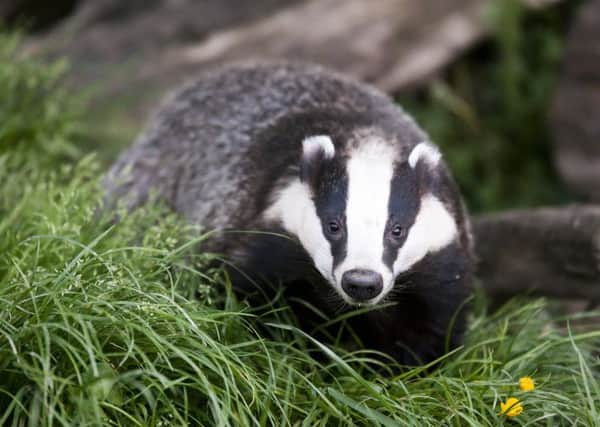Imports '˜more a threat to TB-free status than badgers'


That was the warning given by NFU Scotland president Andrew McCornick, who said that cattle keepers needed to behave responsibly and think carefully about bringing cattle from high-risk areas into Scotland.
• READ MORE: Farming news
Writing in the union’s blog page, McCornick said that cattle keepers had a precious attribute in the form of the country’s TB-free status – but warned that eight of the 11 outbreaks recorded in the country in the past year were directly attributed to cattle movements.
Advertisement
Hide AdAdvertisement
Hide Ad“In other words, they were avoidable,” he said. “Breakdowns are painful for everyone involved and can drag in neighbours and customers.”
Stating that the business and emotional impact could be crippling, McCornick said: “We need to protect [our TB free status] as it is a hard-won achievement. There can only be value in this with Brexit and trade implications and the ability to provide TB-free stock to other.”
In a thinly veiled warning to the sector against importing cattle, McCornick said that the strain of TB in the Cumbrian badgers which had sparked media interest suggested it most likely came from imported Irish cattle – which had then infected neighbouring animals and then made its way in the local wildlife population: “And the same scenario could occur in Scotland.”
He said that bringing cattle into Scotland was risky: “Pre-movement testing of animals helps provide a layer of protection, but the sensitivity of TB testing means you do get false negatives, which is why we add the additional layer of protection by post-movement testing as well.”
In a nod to the current double testing regime, he said that the importance of post-movement testing was clear when bought-in animals failed the post-movement test.
“Failures at post-movement testing do not necessarily reflect bad practice at the pre-movement testing stage, they are often just a part of the complicated picture of TB testing and control,” he said.
Advertisement
Hide AdAdvertisement
Hide AdMcCornick said that analysis of Scottish TB breakdowns demonstrated that that there was currently no significant reservoir of disease in the wildlife population: “But that could change and the sad fact is that, if it does, it would be most likely to be because of imported cattle and not wildlife.
“The wildlife reservoir that can be created from the movement of infected cattle is something that must be taken seriously and it seems to me to be illogical that there is no issue in culling cattle to eradicate a disease but a major vector [badgers] is protected.”
Keith Brooke to stand down at RHASS
Keith Brooke, who oversaw a £5 million investment in infrastructure at the Royal Highland Showground and presided over this year’s record-breaking show, is to step down as chairman of the Royal Highland & Agricultural Society of Scotland (RHASS).
A director for 30 years, Brooke, who farms at Carscreugh near Newton Stewart, was appointed chairman in July 2016 – but while his tenure still had another year to run the society yesterday announced that he had stepped down from the top post for personal reasons.
• READ MORE: Royal Highland Show enjoys record year
Brooke said that it had been a great honour to hold the position, particularly during a period of significant investment in the showground which he said would generate additional funds to allow RHASS to carry out its charitable remit.
“The Royal Highland Show is very close to my heart and I am proud to have been the Chairman for what was a record-breaking 2017 show,” he said.
Brooke, who was injured by a bull earlier in the year, paid tribute to his fellow society directors and said he looked forward to playing a continued role with the society, albeit with a significantly reduced workload which would allow him to concentrate more on his farm business.
Willie Gill, RHASS honorary secretary, added: “On behalf of RHASS, I would like to acknowledge the significant contribution Keith has made in his 30 years as director and latterly as chairman.”
Advertisement
Hide AdAdvertisement
Hide AdWhile Lanark farmer Jim Warnock, Sandilands, is currently chairman-designate, a final decision will be taken on the election of a new chairman at the society’s upcoming board meeting next month.